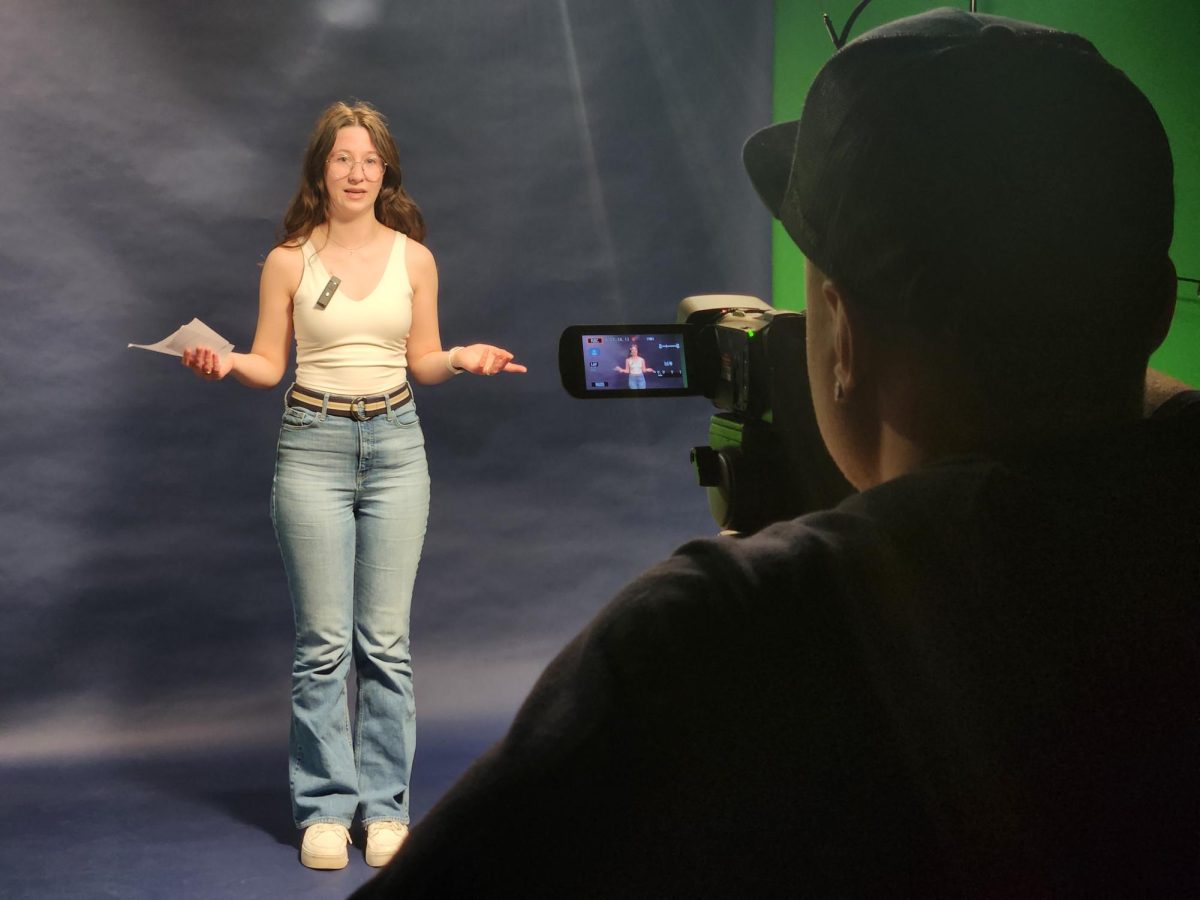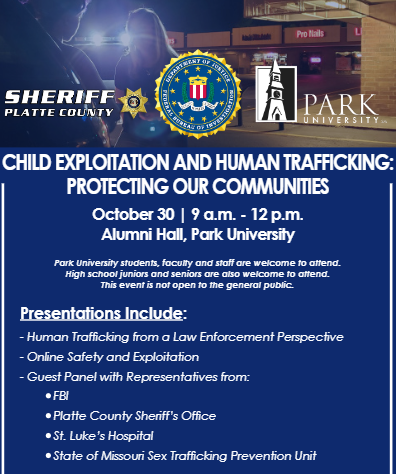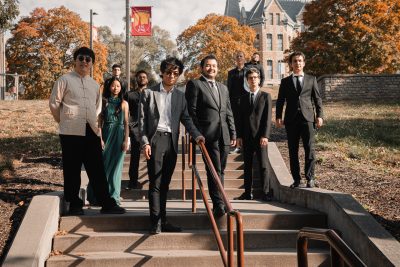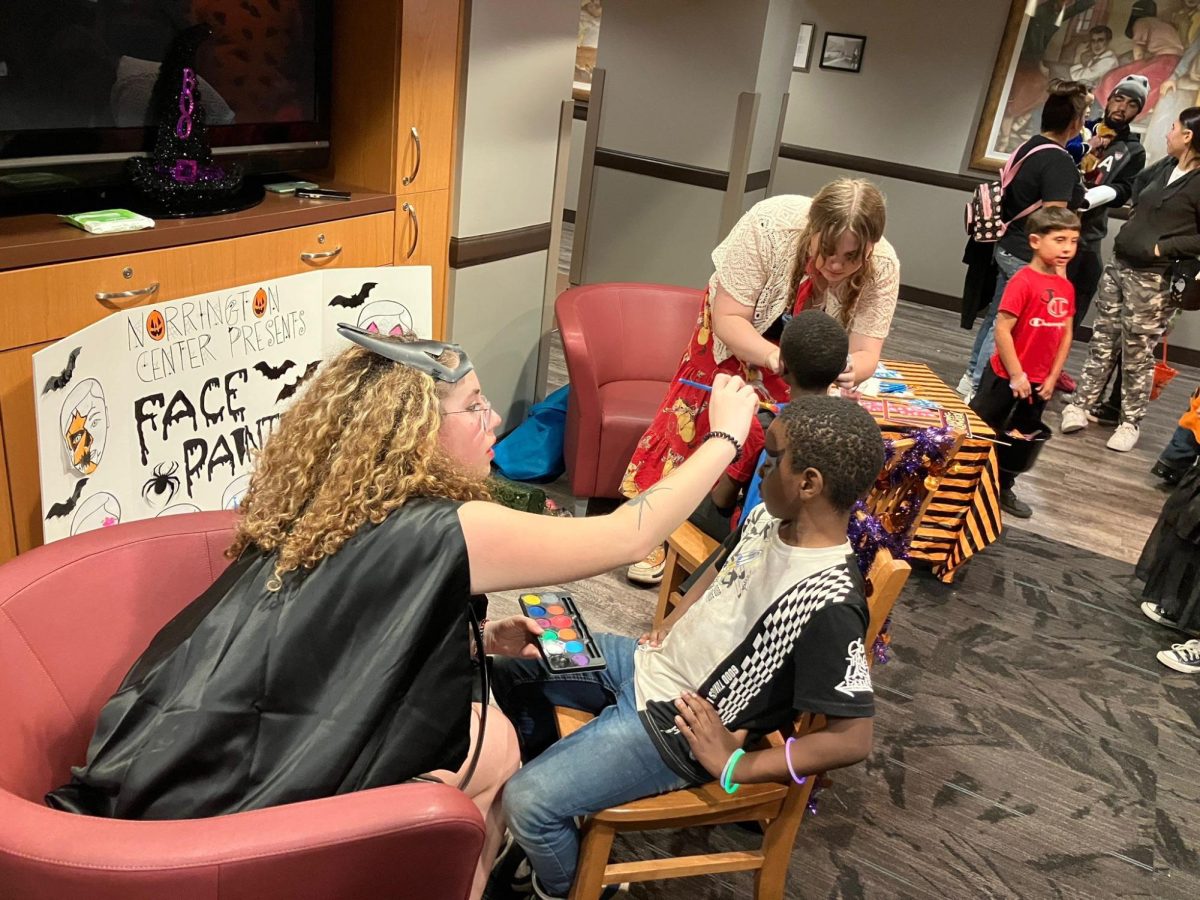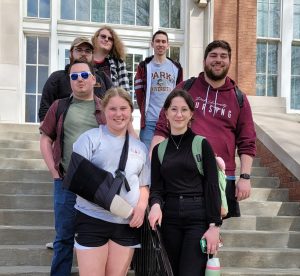
Park University’s Speech and Debate Team participated in the International Public Debate Associations (IPDA) National Tournament in Starksville, Miss., located on the Mississippi State University campus, from April 12-15, 2024. Ashlee Dureka, freshman, went 9-1 and ended 32nd best in the nation. There were 48 other schools attending the tournament with nearly 600 student debaters.
Adam Wilkins, a senior majoring in nursing and vice president of the team, advanced to double octofinals in Varsity IPDA. Dureka went to elimination rounds and ended in double octofinals for Novice IPDA. She competed against 127 other entries in Novice IPDA. Wilkins and Martin Roberson, a sophomore secondary-education major and president of the team, advanced to double octofinals in Team IDPA. Dureka and Dani Burg, a freshman accounting major and Park Pirate soccer goalie, participated in Novice Team IPDA.
“I love debate,” said Dureka. “It’s my favorite thing. If could get paid just to overthink and debate all day long, I would do it.” Dureka joined Park Speech and Debate the beginning of this academic school year, in Sept. 2023.
The event was tightly run, with no event going over time, said Lara Cohn, Ph. D., the teams coach. The league of debate is growing phenomenally. “This was the biggest tournament they’ve had since COVID,” said Cohn. Friday, April 12, was team IPDA. Saturday and Sunday, April 13 and 14, were Novice and Varsity IPDA. Monday, April 15, was quarter-finals and finals. It was a long
“I was expecting to go to nationals and not break,” said Dureka. Her performance was the culmination of many lessons learned this last year. She learned how to persuade and work on a time crunch. For IPDA, the two opponents “strike,” or choose by process of elimination, their topic for the debate. Then the two part ways for 30 minutes of research time. It is this time crunch that can cause some issues for the debaters.
Dureka remembered one round at the tournament where she read the resolution for the debate incorrectly. “He who opens a school door closes a prison,” is what it read, but Dureka mistakenly dropped “school.” “It changed the whole meaning!” she said. The entirety of her research went to argue a point that wasn’t in the resolution.
Dureka thought on her feet, however. There are several weighing mechanisms a debater can use to base their argument. One is preponderance of the evidence, where whomever has the most evidence must obviously have the best argument. It could be weighed on morality and who is most moral. Or it can be a policy round. Dureka was negative, so her opponent got to set the weighing mechanism, a policy round. However, Dureka was able to argue that round was not a policy round to be proved by preponderance of evidence, but a fact round to be proved by counter-factuals.
Dureka won the round by arguing her framing of the weighing mechanism was correct and refuting the incorrect framing and argument of the affirmative. “I like to play devil’s advocate,” said Dureka. And so she has learned to think quickly and see the root of an argument.
Dureka has grown extensively, according to the team’s coach Lara Cohn, Ph. D. The first couple of tournaments the more experienced debaters, Roberson and Wilkins, did very well. Throughout the season they imparted their knowledge onto the freshman and let them excel.
IPDA and debate in general can be highly subjective, depending on the judge. Some members are more leery of judges than others. Dureka said that the judges can be bad, but she did well so complaining would be a mark of poor sportsmanship, “I can’t say a judge is wrong, because I won.” But she recognized that personality and congeniality can go a long way. “If you’re not someone who is charismatic or charming, it factors in,” she said.
Roberson had a different view. He said that judges can often be highly biased, especially on news rounds. They can completely miss the point of an argument or just dislike the opinion the debater has to argue for or against. This can be really disappointing, said Roberson.
Cohn echoed this. Sometimes judges, especially student judges, can make mistakes. She recalled an instance at a previous tournament where a judge had come up to a team member afterward and told them that now understood their argument, but at the time voted against them.
“Debate has evolved,” she said. It is cyclical. It starts of very congenial and gentlemanly, but becomes more technical, faster and meaner. She said there is some worry about this in association. At the tournament there was a large talk about the IPDA constitution. The section in question pertains to who gets to do what in a round and what is abusive. Some teams rightfully use every tool at their disposal, but that leads to the cyclical increase of mean spirited technicality. “It creates and over reliance on evidence and technicalities and not enough argumentation or persuasion,” said Cohn. The association is trying to prevent it from getting to bad.
Cohn gave praise for all the members. Roberson learned the valuable lesson of humility, said Cohn. Wilkins learned the importance of school-life balance, having to juggle Speech and Debate with his nursing finals and clinicals. Dureka learned to come out of her shell and become more assertive in her argumentation. Dani Burg, a freshman accounting major and Park Pirate soccer goalie, honed her ability to listen and dismantle arguments. Zachary Knowles, a freshman secondary education major, learned to be cautious with what you say because it can be and will be used against you. Arastas Allen, a freshman communications major, learned that you cannot always trust your own judgement for how something went.
The team improved most on their research abilities, said Cohn. Dureka, Roberson and Burg agreed with that assessment.
Overall, the team did well this year, said Cohn. She is preparing for next year. She wants to focus on the fundamentals. Specifically, she mentioned a focus on cross-examination.



